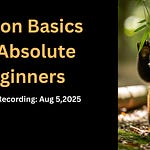This is the final episode—Episode 3—in our conversation series with Mike Caulfield. In this episode, we explore three interrelated themes that shape his current thinking on AI and education.
We begin with Stephen Toulmin, whose work on the structure of argument is the inspiration for Mike’s latest project. Toulmin challenged the idea that reasoning is a single, formal process. Instead, he argued that different domains—science, law, personal experience—each rely on their own norms and forms of justification. His insight provides a foundation for understanding how AI might help students engage with different modes of reasoning.
From there, we turn to Toulmin’s central point: reason is not unitary. Drawing on Toulmin’s model, we discuss how arguments differ depending on context, and why education must help students recognize and work within these distinct reasoning frameworks.
Finally, we explore the idea of cognitive apprenticeships—a deep insight into learning itself. There is a crucial difference between learning history and thinking like a historian, just as there is a difference between learning programming and thinking like a programmer. We discuss how AI, if used wisely, can help students apprentice into these ways of thinking.









